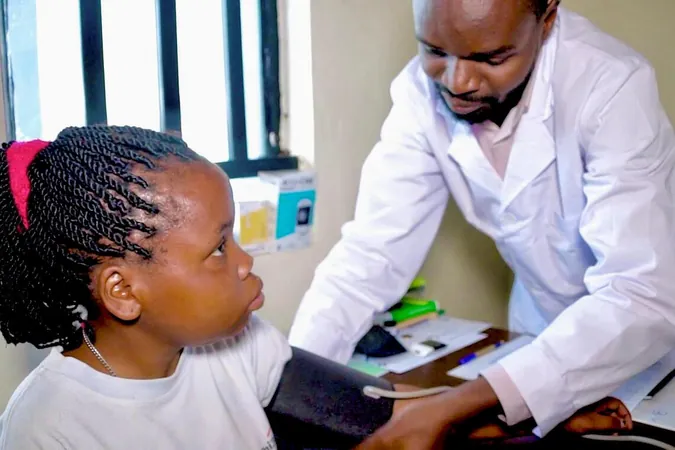
Unmasking Type 5 Diabetes: The Hidden Epidemic Affecting 25 Million Lives
2025-09-18
Author: Nur
In a groundbreaking revelation, a mysterious variant of diabetes, affecting a staggering 25 million people predominantly in underprivileged nations, has finally received a name: Type 5 Diabetes. This form of the disease, noted for its unusual characteristics, has largely been overlooked in the medical community—until now.
Dr. David Phillips, an emeritus professor at the University of Southampton, first identified this alarming trend nearly two decades ago while observing young, lean individuals in northern Ethiopia who were succumbing to diabetes despite their undernourished childhoods. This critical observation has now prompted experts to call for standardized diagnostic criteria and treatment protocols.
A Disturbing Trend: The Face of Type 5 Diabetes
The profile of Type 5 Diabetes patients is strikingly different from the standard demographic most people associate with diabetes. Instead of the typical obese and sedentary individuals suffering from type 2 diabetes, Dr. Phillips’ findings highlighted lean 30-year-olds hailing from impoverished backgrounds, many of whom experienced severe food scarcity as fetuses or in their formative years.
In Ethiopia, where healthcare resources are limited, many of these individuals suffer in silence, often facing fatal consequences because their condition goes unrecognized. As Dr. Phillips aptly noted, "there are people who die in a corner of their house because nobody ever thought about them having diabetes."
The Need for Recognition and Action
The World Health Organization first acknowledged this diet-related form of diabetes in 1985, referring to it as malnutrition-related diabetes. However, it was discontinued in 1999 due to contradictory views on the impact of nutritional deficiencies on diabetes. Now, experts are urging the global medical community to formally recognize Type 5 Diabetes, asserting it likely affects millions and diminishes their quality and lifespan.
Led by Dr. Pradnyashree Wadivkar from Albert Einstein College of Medicine and Dr. Felix Jebasingh from Vellore’s Christian Medical College, a coalition of over 30 scientists has rallied behind this initiative, bringing attention to evidence from countries like Bangladesh, Rwanda, and Indonesia.
The Urgency of Now: Climate Change and Healthcare Strain
As the world grapples with climate change and its effects on nutrition, those afflicted by Type 5 Diabetes remain particularly vulnerable. With many of these patients residing in countries with strained healthcare systems, the urgency for action has never been greater. It's time for Type 5 Diabetes to step out of the shadows and into the spotlight, demanding the attention it desperately needs.
The call for structured guidelines and treatment options isn't just a medical necessity—it's a moral imperative to honor the lives of millions fighting this hidden epidemic.




 Brasil (PT)
Brasil (PT)
 Canada (EN)
Canada (EN)
 Chile (ES)
Chile (ES)
 Česko (CS)
Česko (CS)
 대한민국 (KO)
대한민국 (KO)
 España (ES)
España (ES)
 France (FR)
France (FR)
 Hong Kong (EN)
Hong Kong (EN)
 Italia (IT)
Italia (IT)
 日本 (JA)
日本 (JA)
 Magyarország (HU)
Magyarország (HU)
 Norge (NO)
Norge (NO)
 Polska (PL)
Polska (PL)
 Schweiz (DE)
Schweiz (DE)
 Singapore (EN)
Singapore (EN)
 Sverige (SV)
Sverige (SV)
 Suomi (FI)
Suomi (FI)
 Türkiye (TR)
Türkiye (TR)
 الإمارات العربية المتحدة (AR)
الإمارات العربية المتحدة (AR)